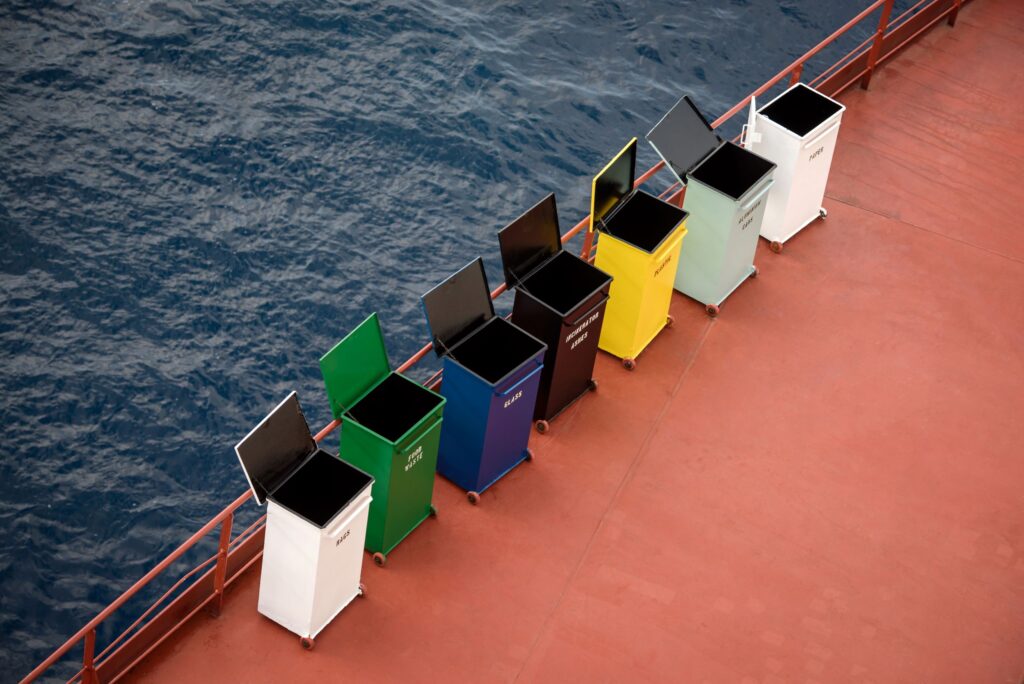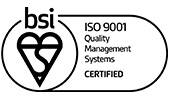Waste management is a critical issue that affects the health of our planet and the well-being of future generations. While much attention has been given to onshore waste management practices, the management of waste offshore, particularly in marine environments, is equally important. The proper disposal and management of waste at sea are vital to protect marine ecosystems, prevent pollution and contribute to a sustainable future.
Why it is Important to Have Proper Waste Management Offshore
Protection of Marine Life and Eco Systems
The oceans are home to a rich array of marine life and delicate ecosystems. Vessel waste, including garbage, plastics and hazardous materials can pose serious threats to marine organisms, leading to entanglement, ingestion, and habitat destruction. Effective waste management practices onboard help to reduce the risk of pollution and minimise the impact on marine biodiversity and fragile ecosystems.
Preventing Water Pollution
Improper disposal of waste from vessels, such as untreated sewage and oily wastewater, can result in water pollution, endangering the quality and health of marine ecosystems. Adopting robust waste management onboard, including proper treatment and disposal methods, is crucial for preventing contamination of marine waters and safeguarding public health.
Compliance With International Regulations
The International Maritime Organisation (IMO) has developed several regulations to address vessel waste management. The International Convention for the Prevention of Pollution from Ships (MARPOL) sets standards for the disposal of garbage, sewage, oily wastes and other harmful substances. Compliance with these and other applicable regulations is essential to ensure environmentally responsible practices and to avoid penalties and legal repercussions.
How Can EMS Assist?
EMS Assist can deploy highly skilled Environmental Advisors to client worksites globally. An Environmental Advisor plays a crucial role in waste management when working in offshore or marine environments. In this area, the primary responsibility of the Environmental Advisor is to ensure that waste generated during offshore operations is properly managed and disposed of in an environmentally responsible manner.
Some Key Aspects of the Role Include:
Waste Characterisation and Assessment: EMS Assist Environmental Advisors will assess and classify different types of waste generated offshore, such as hazardous waste, non-hazardous waste, recyclable materials and other categories. This helps in determining appropriate handling, treatment, and disposal methods for each type of waste.
Waste Minimisation and Recycling: Minimising waste generation is the first step towards effective waste management. EMS Assist Environmental Advisors aim to minimise waste generation by promoting waste reduction strategies and recycling initiatives. They can develop waste management plans that include recycling programs, waste segregation systems, and the use of environmentally friendly materials.
Waste Handling and Storage: EMS Assist Environmental Advisors provide guidance on the safe handling, storage and containment of waste materials to prevent spills, leaks or any other form of pollution. This may involve designing and implementing appropriate waste storage facilities and ensuring proper labelling and documentation of waste containers.
Disposal and Treatment Methods: EMS Assist Environmental Advisors can assist in identifying and evaluating suitable waste treatment technologies based on the characteristics of the waste and environmental regulations.
Crew Training and Awareness: EMS Assist Environmental Advisors are skilled educators. They can deliver crew training to raise awareness about the importance of waste management ensuring effective practices onboard. Training programs can educate the workforce on waste segregation, handling procedures and the environmental consequences of improper waste disposal. Our Environmental Advisors will encourage a culture of environmental stewardship among crew members which helps foster responsible waste management practices.
Waste Audits and Monitoring: EMS Assist Environmental Advisors conduct regular waste audits to assess the effectiveness of waste management practices. They will monitor waste generation, disposal methods and the performance of waste treatment systems. Date collected during these audits help to identify areas for improvement.
Collaboration and Coordination: EMS Environmental Advisors will work closely with offshore operations teams, waste management service providers , regulatory agencies, and other stakeholders to ensure effective waste management. They facilitate communication, coordinate waste handling activities, and foster collaboration to achieve environmental objectives.
Compliance with Regulations: EMS Assist Environmental Advisors are responsible for staying up to date with applicable regulations and ensuring that waste management practices are in compliance with these regulations.
Effective waste management offshore is essential for protecting marine eco systems, conserving water quality, preventing marine pollution and promoting a sustainable future. A skilled Environmental Advisor can play a pivotal role in this process to assist companies in implementing effective waste management strategies and achieving environmental aims.
If you would be interested in hearing about any of our environmental services, please contact us at:
T: 0191 537 1629
We would also love to hear from any Environmental Professionals who would be interested in joining the EMS team. Please contact recruitment@ems-assist.com for more information.
Thank you!
The EMS Team


